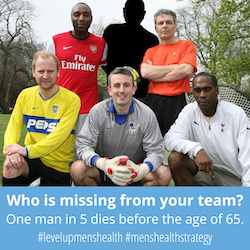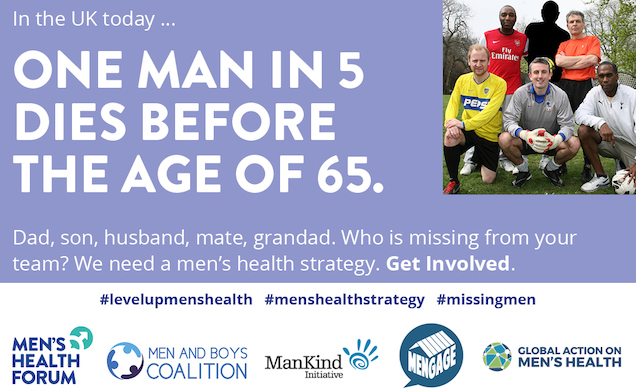The written evidence to the UK parliament’s Health and Social Care Inquiry into men’s health has now been published online.
Among over 7,000 submissions was the evidence from the Men's Health Forum. We call for urgent action to tackle a recent fall in life-expectancy, wider health inequalities than for women’s health, and significantly higher mortality, including from heart disease, cancer, diabetes, liver disease, suicide, accidents, overdoses and Covid‑19. Specifically, we ask for:
- Better measurement and analysis including routine gender disaggregation of data - requiring Ministers, OHID and health system leadership to measure, recognise and act on the gender gaps;
- Targeted improvements in outreach and access;
- Dramatic improvements in health prevention - tackling the historic failure to engage men in weight management and continuing to drive reductions in alcohol and substance misuse;
- Improved screening for heart disease and all cancers (not just sex-specific), linking community, workplace and primary care testing;
- Support for voluntary sector organisations targeting those men and boys in greatest need;
- Research, especially in improving early diagnosis of men’s health and in interventions where a gender-informed response will improve outcomes;
- Embedding men’s health into all health professional training, and actively seeking to reduce shortfalls in male recruitment in health and care roles;
- Reapplying relevant, successful elements of the Women’s Health Strategy, including the creation of a dedicated Men’s Health Strategy, appointment of a Men’s Health Ambassador, creation of a clinical men’s health lead in NHS England and support for the expansion of men’s health hubs and (men’s health) champions and other models of ‘one-stop clinics’.
You can read our evidence here and find the links to all the evidence here.
POST brief
At the same time, the UK parliament’s Parliamentary Office of Science and Technology (POST) has published a report into Men’s Health. POST briefs, which are externally peer reviewed, are based on literature reviews and interviews with a range of stakeholders making them a useful source of reliable data.


